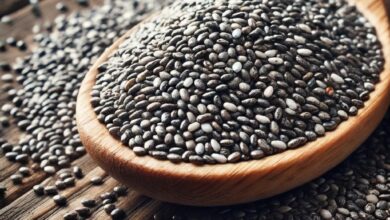Parsley is more than just a garnish; it’s a powerhouse of nutrients and health benefits that can significantly enhance your daily diet. In this article, we will explore the advantages and disadvantages of incorporating parsley into your daily menu and why this humble herb deserves a permanent spot in your kitchen.
Advantages of Parsley
1. Nutrient-Rich
Parsley is packed with essential vitamins and minerals, including:
- Vitamin A: Supports eye health and boosts the immune system.
- Vitamin C: Acts as a powerful antioxidant and enhances skin health.
- Vitamin K: Crucial for blood clotting and bone health.
- Folate: Important for cell division and DNA synthesis.
- Iron: Helps prevent anemia and boosts energy levels.
2. Antioxidant Properties
Parsley is rich in antioxidants such as flavonoids and vitamin C, which help protect the body from oxidative stress. This can reduce the risk of chronic diseases like heart disease and cancer.
3. Anti-Inflammatory Effects
The volatile oils in parsley, such as eugenol, have anti-inflammatory properties that can help reduce inflammation in the body. This is beneficial for conditions like arthritis and inflammatory bowel disease.
4. Digestive Health
Parsley aids in digestion by stimulating the production of digestive enzymes and bile. It can help alleviate bloating and indigestion, making it a great addition to meals that are heavy or rich.
5. Bone Health
High in vitamin K, parsley supports bone health by promoting bone mineralization and improving calcium absorption. Regular consumption can help maintain strong and healthy bones.
6. Detoxification
Parsley acts as a natural diuretic, helping the body eliminate excess fluids and toxins. This can be beneficial for kidney health and in reducing water retention and bloating.
Disadvantages of Parsley
1. Oxalate Content
Parsley contains oxalates, which can contribute to the formation of kidney stones in susceptible individuals. People with a history of kidney stones should consume parsley in moderation.
2. Allergic Reactions
Some individuals may be allergic to parsley, experiencing symptoms like skin rashes, itching, or difficulty breathing. It is important to be aware of any potential allergies before incorporating parsley into your diet.
3. Interaction with Medications
Due to its high vitamin K content, parsley can interact with blood-thinning medications such as warfarin. Individuals on such medications should consult their healthcare provider before significantly increasing their parsley intake.
4. Potential for Photosensitivity
Parsley contains furanocoumarins, compounds that can cause photosensitivity in some people. This can lead to skin irritation or sunburn when exposed to sunlight after consuming large amounts of parsley.
Why Include Parsley in Your Daily Menu?
Versatility in Cooking
Parsley is incredibly versatile and can be used in a wide range of dishes. From salads and soups to sauces and marinades, its fresh flavor can enhance the taste of almost any meal. Including parsley in your daily menu is an easy way to add flavor and nutrition to your diet.
Health Boost
Incorporating parsley into your daily meals can provide a consistent source of essential nutrients and antioxidants. Its health benefits can support overall well-being, from boosting immunity to improving bone health and aiding digestion.
Weight Management
Low in calories but rich in fiber, parsley can help you feel fuller for longer, making it an excellent addition to a weight management plan. Its diuretic properties also help reduce water retention, contributing to a slimmer appearance.
Freshness and Flavor
Parsley adds a burst of freshness to any dish, making it more appealing and enjoyable. Its unique flavor can enhance the taste of both savory and sweet dishes, encouraging you to eat healthier and more varied meals.
Parsley is a nutrient-dense herb with numerous health benefits, making it a valuable addition to your daily menu. While it’s important to be mindful of potential disadvantages, such as allergies or interactions with medications, the advantages of regular parsley consumption far outweigh the drawbacks. By incorporating parsley into your meals, you can enjoy its fresh flavor while reaping the numerous health benefits it offers. Make parsley a staple in your kitchen and take a step towards a healthier, more flavorful diet.






